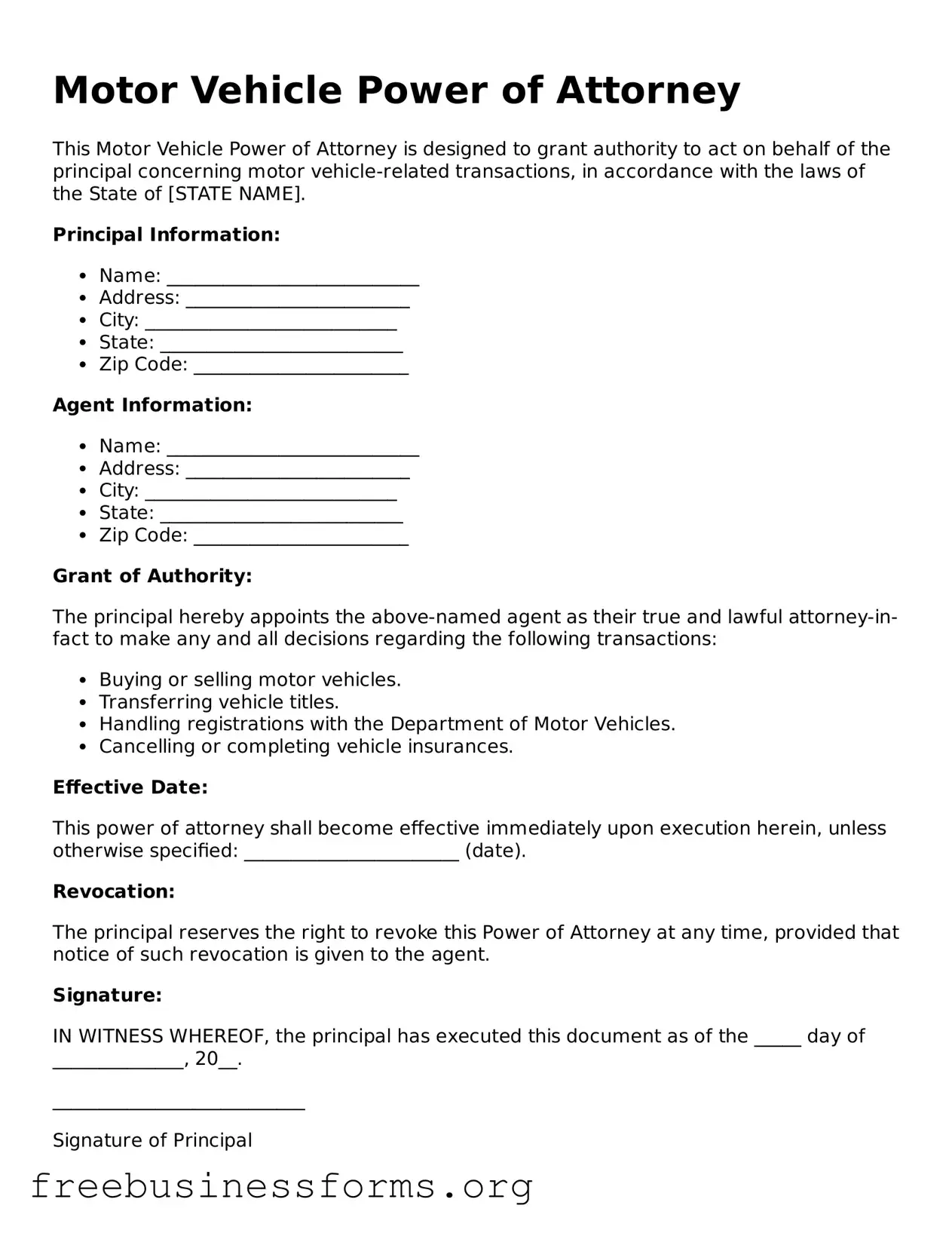Official Motor Vehicle Power of Attorney Form
The Motor Vehicle Power of Attorney form is a legal document that allows one person to authorize another to handle specific tasks related to a vehicle on their behalf. This can include signing documents for title transfers, registration, and other vehicle-related matters. Understanding this form is essential for anyone needing assistance with their vehicle transactions.
Open Form Here

Official Motor Vehicle Power of Attorney Form
Open Form Here

Open Form Here
or
↓ PDF File
Quickly complete this form online
Complete your Motor Vehicle Power of Attorney online quickly — edit, save, download.